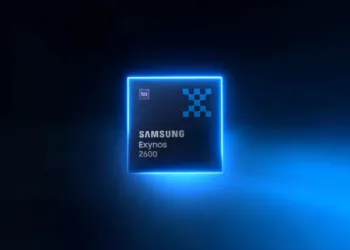Building high-performance microprocessors are becoming more difficult and expensive, which is why designers must use advanced packaging methods with designs geared toward performance-hungry applications. Apple concedes that it had to fuse two M1 Max system-on-chips to form the M1 Ultra CPU, but it didn’t reveal that it had to use one of TSMC’s most advanced packaging processes to do so.
Unofficial sources, fortunately, are less discreet than Apple and were able to discover more information regarding Apple’s UltraFusion interprocessor interface, which has a bandwidth of 2.5 TB/s. According to DigiTimes, Apple’s M1 Ultra processor* was built using TSMC’s CoWoS-S (chip-on-wafer-on-substrate with silicon interposer) 2.5D interposer-based packaging method. Companies like AMD, Nvidia, and Fujitsu use similar methods to develop their high-performance CPUs for data centres and high-performance computing (HPC).

The M1 Ultra from Apple is a formidable design. Because each M1 Max SoC has a die size of 432 mm2, the M1 Ultra’s interposer must be larger than 860 mm2. That’s a lot of money, but it’s not unheard of. With their computational GPUs with high-bandwidth memory, AMD and Nvidia require even larger interposers.
However, TSMC’s CoWoS-S is not the only bandwidth-hungry application choice available to the world’s largest contract semiconductor manufacturer. Apple could use TSMC’s InFO LSI technology for ultra-high bandwidth chipset integration, according to certain analysts. InFO LSI, unlike CoWoS-S, uses localised silicon interconnects rather than massive, expensive interposers. The integrated die interconnect bridge (EMIB) from Intel is based on the same idea.

However, there’s a reason Apple may have stuck with the CoWoS-S, which is considerably more expensive. The InFO LSI from TSMC was unveiled in August 2020 and was expected to be qualified in Q1 2021. Meanwhile, Apple’s M1 Max was supposed to go into mass production in Q2 or Q3 2021, thus it’s possible that the company just ran out of time to add InFO LSI. That example, it may have decided not to take a chance and instead continue with a well-known technology that is extensively used by a variety of businesses.
Unimicron Technology is now Apple’s sole provider of ABF (Ajinomoto build-up film) substrates, according to DigiTimes, because it is the only manufacturer capable of delivering the quality and quantity that Apple requires.
Also Read:








